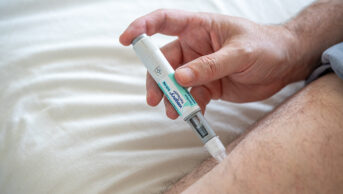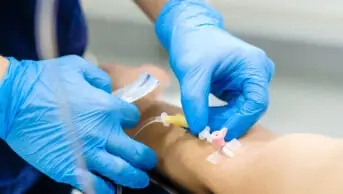The second once-weekly non-insulin injection for patients with type 2 diabetes became available in the UK from 13 January 2015.
Modified release dulaglutide (Trulicity), produced by Eli Lilly, is a glucagon-like peptide (GLP-1) receptor agonist.
The launch means patients with type 2 diabetes now have an alternative to AstraZeneca’s Bydureon (modified release exenatide), which is already available as a weekly injection in the UK.
But whether the second-in-class dulaglutide proves to be popular with patients will be down to whether the pen is easier to use than its UK market competitor, says Victoria Ruszala, specialist pharmacist for diabetes at North Bristol NHS Trust.
“Eli Lilly has said it is a better pen but if AstraZeneca improves its pen then clinical commissioning groups will go with the cheaper option,” says Ruszala.
The availability of dulaglutide could improve treatment compliance for patients with type 2 diabetes as the drug is administered weekly rather than daily. “But patients with memory issues may struggle because they may forget to take it,” Ruszala adds.
Dulaglutide is indicated to improve glycaemic control in adults with type 2 diabetes as both mono- and add-on therapy. As monotherapy, it can be used when diet and exercise alone do not provide adequate glycaemic control in patients for whom metformin is inappropriate. The recommended monotherapy dose is 0.75mg once weekly.
It can also be used in combination with other glucose-lowering medicines, including insulin, when these, together with diet and exercise, do not provide adequate glycaemic control. The recommended dose is 1.5mg once weekly.


